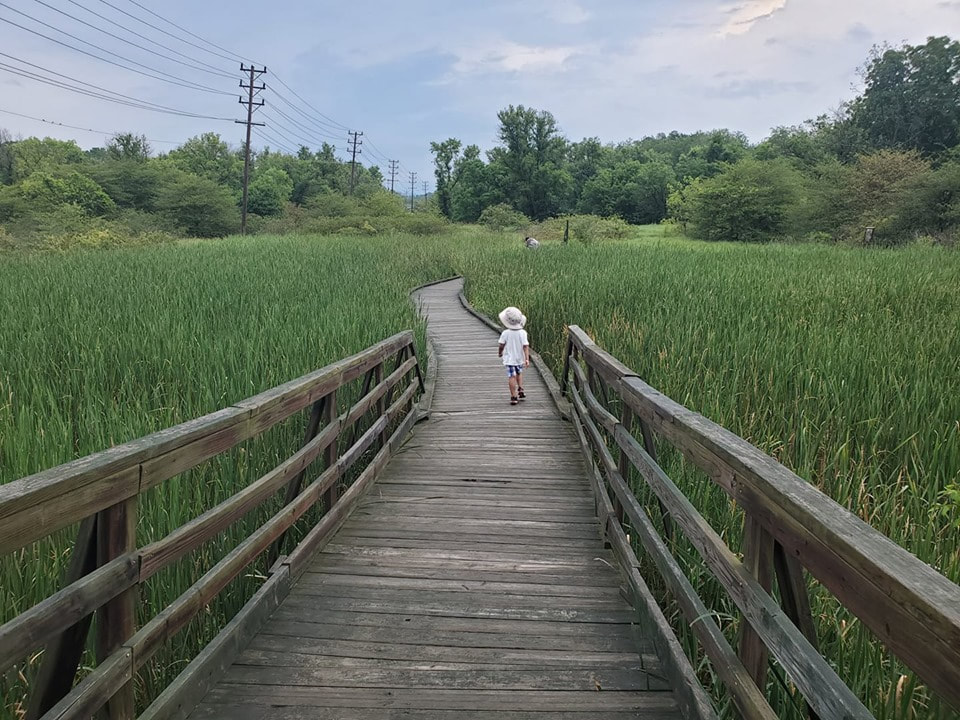
We learn, at a basic level, by sensing (body) the world about us and making sense (mind) of the world. Regardless of subject, of the five senses, the ear may be the one least taken advantage of in school settings. Generally speaking, in the U.S. at least, we're good at teaching for the eye but bad at the ear. And yet, hearing embraces people in a way the eye often doesn't. The eye creates distance. The ear closeness. To hear a shout of joy or of terror demands immediate action in a way seeing a photo doesn't. A picture may be worth a thousand words, but an effective sound changes us at our core. And so, I believe educators, especially music educators, can be more impactful by incorporating soundscape listening.
A soundscape is "the acoustic environment as perceived by humans." In writing about recreating historical soundscapes, Marinna Guzy suggests, "soundscapes help people reconnect with one of their primary senses in a meaningful and focused way. This has critical repercussions for policy development and regulations. As people grow more aware of their sonic environment, they consider the impact of noise on human and environmental health." Studying soundscapes, then, helps us live well and cultivates eco-literacy. How well do we help our students become aware of their soundscapes? How often do we ignore our own?
When my 4-year old and I walk at Millbrook Marsh, multiple times each week, we discuss the various soundscapes throughout our hike. This time of year, various bugs and birds dominate the soundscape. We record these using an app on my cellphone. And we describe the sounds to each other musically. We later try to find out which species make which sounds. At Millbrook, some of our favorites, this week, were the songs of red-winged blackbirds, with their rough, scratchy sounds. Simply, and informal soundscape pedagogy increases knowledge and love, as well as makes use of a local resource, a small area of land that serves the well-being of our community in many ways.
Here are some resources teachers might use to begin incorporating soundscape lessons:
- The Global Soundscapes webpage includes an app to "Record the Earth," including resources to listen to soundscapes around America. Of interest to me are the Scientists Favorites, which links to Soundcloud recordings such as the Miombo Woodlands and and a Penguin Party.
- The Center for Global Soundscapes has a pedagogical aim and teaching resources for informal learning.
- Purdue University's Center for the Environment includes resources and pedagogical suggestions.
- Xeno-Canto houses recordings of thousands of birdsongs. It is also a community to help identify hard-to-identify sounds.
- The German-language website Museum fur Naturkunde includes many soundscape and animal recordings.
- The One-Square-Inch project contains resources for perhaps America's most silent place, located in Olympia Park. It provides videos and sounds as well.
- The U.S. National Parks has long identified soundscape conservation as part of their mission. On their website, many recordings of various National Parks can be found.
By exploring these websites, and others you find, many pedagogical ideas emerge. We can record and describe soundscapes musically. We can compose music using soundscape resources. We can study the music of composers who have used non-human musics as inspiration. And we can learn about our changing soundscapes in our time of climate change. Each of these helps to educate active, caring, knowledgeable citizens--that is eco-literate people.
DJS
 RSS Feed
RSS Feed
